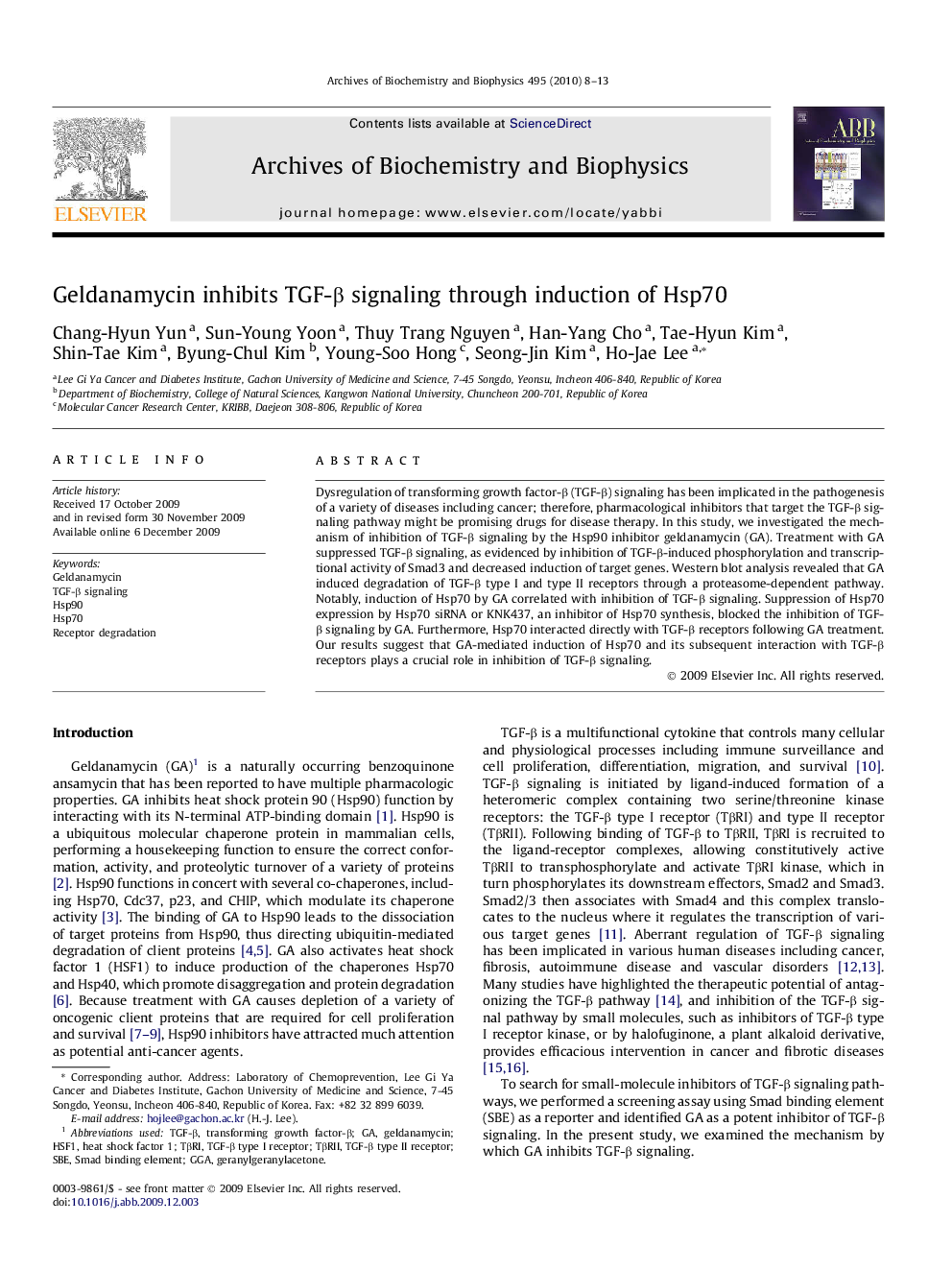| Article ID | Journal | Published Year | Pages | File Type |
|---|---|---|---|---|
| 1926161 | Archives of Biochemistry and Biophysics | 2010 | 6 Pages |
Dysregulation of transforming growth factor-β (TGF-β) signaling has been implicated in the pathogenesis of a variety of diseases including cancer; therefore, pharmacological inhibitors that target the TGF-β signaling pathway might be promising drugs for disease therapy. In this study, we investigated the mechanism of inhibition of TGF-β signaling by the Hsp90 inhibitor geldanamycin (GA). Treatment with GA suppressed TGF-β signaling, as evidenced by inhibition of TGF-β-induced phosphorylation and transcriptional activity of Smad3 and decreased induction of target genes. Western blot analysis revealed that GA induced degradation of TGF-β type I and type II receptors through a proteasome-dependent pathway. Notably, induction of Hsp70 by GA correlated with inhibition of TGF-β signaling. Suppression of Hsp70 expression by Hsp70 siRNA or KNK437, an inhibitor of Hsp70 synthesis, blocked the inhibition of TGF-β signaling by GA. Furthermore, Hsp70 interacted directly with TGF-β receptors following GA treatment. Our results suggest that GA-mediated induction of Hsp70 and its subsequent interaction with TGF-β receptors plays a crucial role in inhibition of TGF-β signaling.
